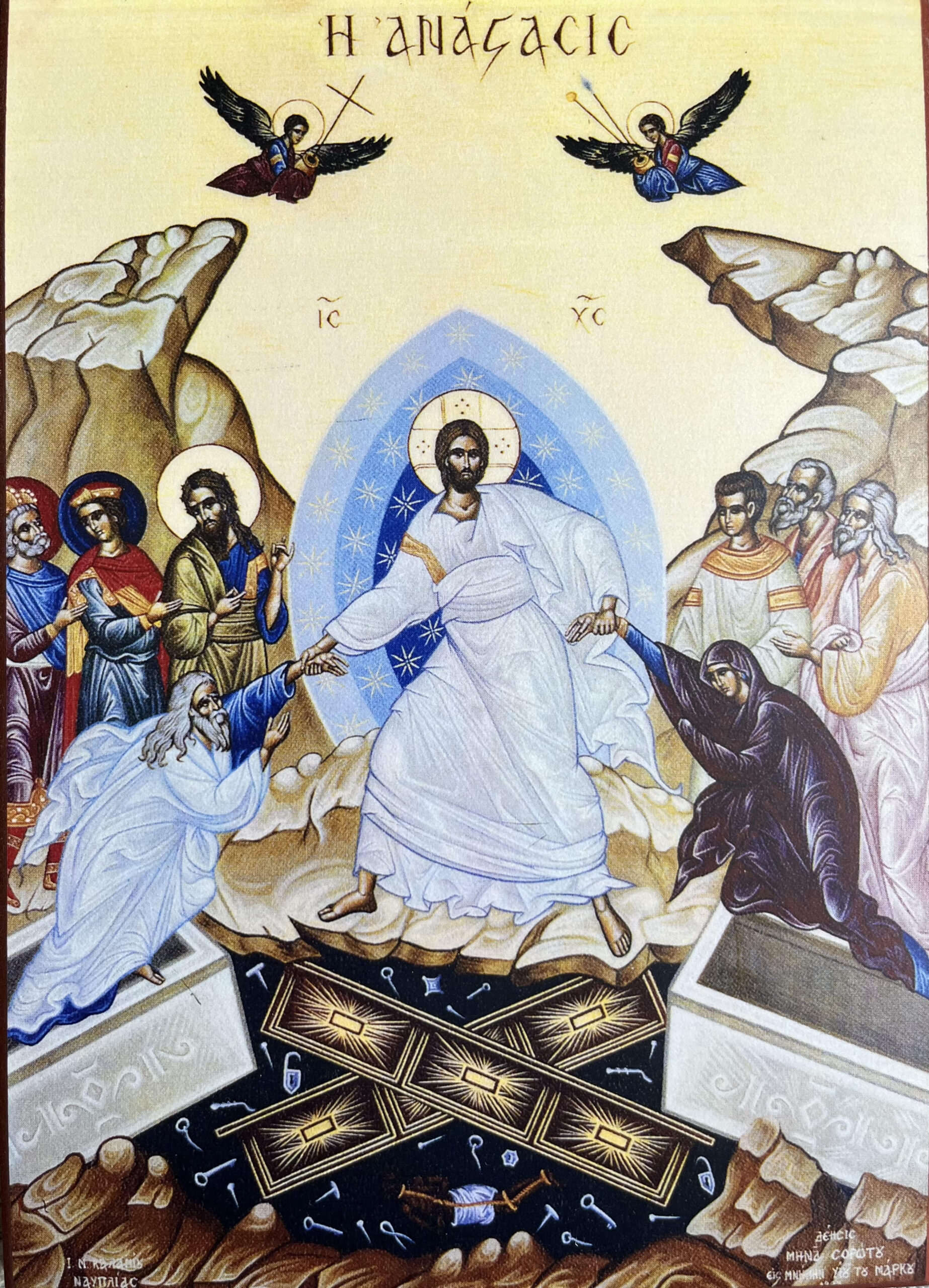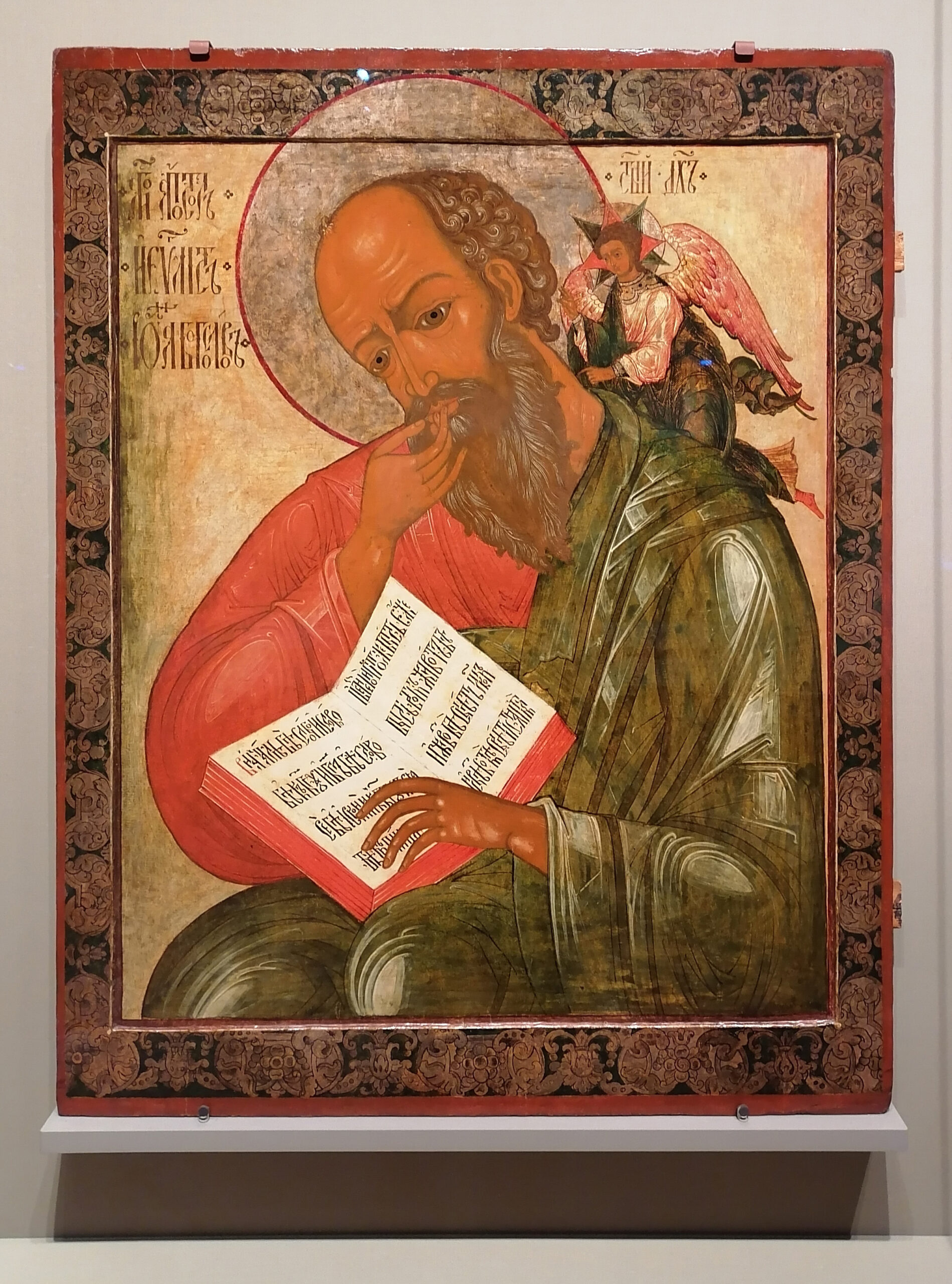Receive me today, O Son of God, as a partaker of Your Mystical Supper; for I will not speak of the Mystery to Your enemies; nor will I kiss You as did Judas; but as the thief I confess You. “Lord, remember me when You come into Your Kingdom.”
~Communion Hymn, Vesperal Liturgy, Holy Thursday Morning, Trans. by Fr. George Papadeas
—
Now as they were eating, Jesus took bread, and blessed, and broke it, and gave it to the disciples and said, “Take, eat; this is My body.” And He took a cup, and when He had given thanks He gave it to them, saying, “Drink of it, all of you; for this is My blood of the new covenant, which is poured out for many for the forgiveness of sins.
Matthew 26:26-28
For I received from the Lord what I also delivered to you, that the Lord Jesus on the night when He was betrayed took bread, and when He had given thanks, He broke it, and said, “This is My body which is broken for you. Do this in remembrance of Me.” In the same way also the cup, after supper, saying, “This cup is the new covenant in My blood. Do this, as often as you drink it, in remembrance of Me.” For as often as you eat this bread and drink the cup, you proclaim the Lord’s death until He comes. Whoever, therefore, eats the bread or drinks the cup of the Lord in an unworthy manner will be guilty of profaning the body and blood of the Lord. Let a man examine himself, and so eat of the bread and drink of the cup. For anyone who eats and drinks without discerning the body eats and drinks judgment upon himself.
I Corinthians 11:23-29
Remembering that the services of Holy Week are celebrated about twelve hours ahead of when the actual events took place, this puts the commemoration of the Last Supper and the Institution of the Holy Eucharist on Holy Thursday morning. It is customary that a Vesperal Liturgy is celebrated on Holy Thursday morning, and this service is one of the ten times a year that St. Basil’s Liturgy is celebrated. The Vespers part of the service is actually the Vespers of Good Friday, so liturgically speaking, this service belongs to Good Friday, and we can receive Holy Communion on Good Friday. The next Liturgy after Holy Thursday is done Holy Saturday morning, but is the Vespers of the Resurrection, which liturgically makes Holy Saturday the only day of the liturgical year on which we cannot celebrate the Divine Liturgy. Of course, on the calendar, the day of Good Friday is the only day on which we do not celebrate Liturgy.
The hymn that is highlighted on Holy Thursday morning, “Receive me today, O Son of God,” is sung at every Divine Liturgy during the distribution of Holy Communion. Because it references the “Mystical Supper”, on this day when we commemorate the Institution of the Eucharist, or Mystical Supper, at the Last Supper, the hymn is sung before the Great Entrance (in place of the Cherubic Hymn), before the distribution of Holy Communion, during the distribution of Holy Communion (as usual), and after the distribution of Holy Communion (in place of “We Have Seen the Light”).
This hymn, again, pulls from multiple passages of Scripture, which is why despite being fairly short, it is a brilliant composition. Of course, it speaks of the Last Supper, where Jesus took bread and wine and distributed them to the disciples, instituting a “New Covenant”, which would no longer be the Law as given to Moses, but the Body and Blood of Jesus Christ, now a blood-less sacrifice (as opposed to the sacrifices of blood required by the Law). Christ’s intention for us as regards to the Eucharist is to receive it often. This is confirmed in I Corinthians 11:26 where St. Paul writes “For as often as you eat this Bread and drink the Cup, you proclaim the Lord’s death until He comes.”
Entire books have been written on the Eucharist and why it is central to the practice of the Christian faith. Suffice it to say that we are sustained in our Christianity by the Eucharist. It is the way we physically touch God and the way that He touches us. It is a foretaste of heaven. What does that mean? We receive Christ in a way that we can handle Him. We can handle seeing and tasting Him through the ordinary gifts of bread and wine that are consecrated to be His Body and Blood. In heaven, we will receive a full measure of Christ, we will behold the fullness of His glory in a way that we can’t on earth. We “practice”, you might say, receiving Christ in this way on earth so that we can receive Him more fully in heaven.
The hymn presents two ways that we can receive Christ. The first way is the way of Judas. Judas was in the inner circle. He had intimate knowledge of Christ. Yet, he betrayed Christ to enemies. However, he did it with a kiss, a sign of affection. There will always be a temptation to receive the Eucharist in a Judas-like manner. We do this when, after we have received, we leave the church and betray Christ by engaging in ungodly activities. Imagine that we have just finished Divine Liturgy, we still have Christ “on our lips,” and we start engaging in gossip, or we start cursing. If we were to do this (and sadly when we do this), we are betraying Christ, we are betraying what we just did in receiving Him.
The second way in which we can receive Christ is the way the thief interacted with Christ on the cross. He said, simply, “Jesus, remember me when You come into Your Kingdom.” (Luke 23:42) It is safe to say that the repentant thief didn’t know exactly what would happen to him. He recognized Jesus as Lord. What he had heard about the kingdom, we do not know. He saw enough in Jesus’ humility that He was able to see His divinity, and dream of being delivered from his own death and humiliation and being allowed to enter into the promised kingdom.
There are many people who approach to receive Holy Communion who may not understand fully what it is we believe or fully comprehend what they are doing in receiving Communion. There may be people who approach for Holy Communion who have had a bad week, who maybe have betrayed God by their actions. We are not required to approach with perfection. Certainly, the thief did not approach Christ that way. We are required to approach with humility, contrition, and repentance, and as we hear in the invitation to Holy Communion, with fear (awe) of God, with faith and with love. The Communion Hymn reminds us that we should be careful as we approach, but more important, that we should approach.
Gladsome light of holy glory of the holy, blessed, heavenly, immortal Father, O Jesus Christ: arriving at the hour of sunset and having seen the evening light, we praise the Father, Son, and Holy Spirit, God. It is worthy for You to be praised at all times with happy voices, O Son of God and Giver of life; and therefore the world glorifies You. (Fos Ilaron, Sung at Multiple Services, including Holy Thursday Morning, Trans. by Fr. Seraphim Dedes)
With the fear of God, with faith and with love, draw near to receive Christ in the Eucharist, cautiously avoiding betraying God, as did Judas, but approaching with humility, as did the thief. Lord, remember us all in Your Kingdom!

